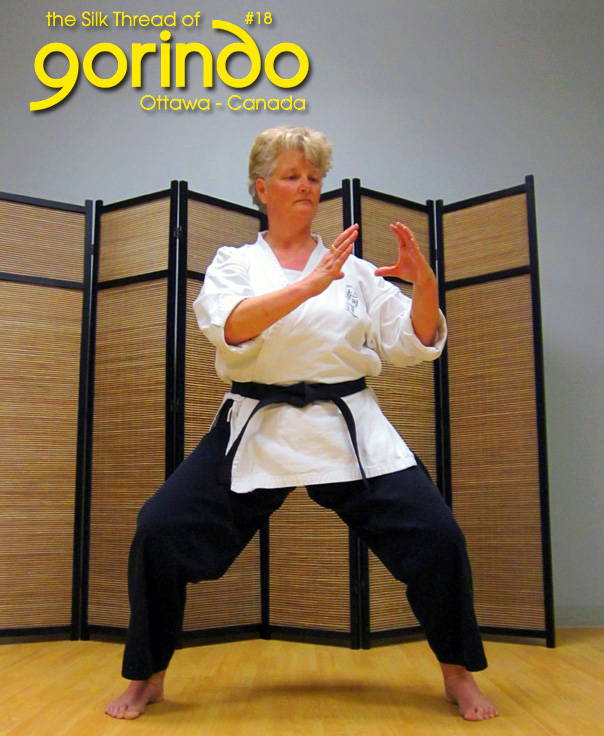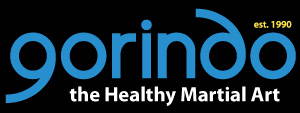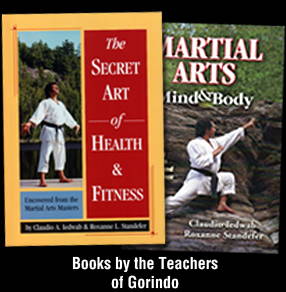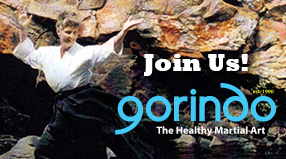
The Silk Thread of Gorindo - Ottawa - Canada
Issue 18
- Advice about... Learning Techniques
- Twin Forearm Block - Kakiwake-uke
Photo cover "Roxanne Standefer's Gorindo Kata Geometrica" by ©2012 Claudio Iedwab
Advice about... Learning Techniques

1•
Learn new techniques (especially kata), only from the sensei, sempai or a designated Assistant Instructor. A fellow student may be trying to be helpful in showing you something you missed from the last class but their grasp of the technique itself is still fragile and they might not spot or prevent errors or injuries. It is much harder to correct a technique learned improperly than to learn it well the first time. Once your teacher indicates that you are performing a technique adequately, then you can continue practicing it with your partner.
2•
If you have trouble with a new technique or combination, relax, breathe, smile, and try again. Tension, too much analysis and browbeating yourself always interferes with finding the right way. Shake off what you perceive to be failure and recognize it as a step in the process of learning. Leave the past behind and focus on the present moment. Remember, every repetition is an absolutely new chance to perform well. You must be relaxed to achieve this.
3•
Do not compete with others or yourself. Forget belt levels or artificial goals. Emphasize improvement and mental focus, strive for excellence while maintaining enjoyment and acceptance of the learning process.
Recognize the natural plateaus in your learning curve. We tend to perceive these as periods of time in which no progress is being made. This is incorrect. In fact it is these plateaus where the real learning is going on. It is when these lessons all 'click' together that we suddenly move ahead and the going seems easier.
4•
If you wish to practice Gorindo outside the dojo, practice what you already know. If your situation prevents you from attending as many classes as you would like, exercise to maintain your fitness and flexibility, but avoid working on techniques of which you are unsure. Unsupervised, you might practice bad habits that are difficult to be rid of and could cause you injury. Open dojo is a better time to solve problems because knowledgeable help is near at hand.
5•
Accept correction. Try to not make excuses. The teacher is only correcting what he or she sees in that moment. Just acknowledge the correction with a nod or say ‘oss’. Don't be upset with yourself. If we already knew how to do it we wouldn't need to train. Try not to be nervous under the teacher's gaze. You are not being judged, you are being taught. In fact, you are being taught how to learn.
6•
Listen and observe carefully. Watch the teacher or senior student as they demonstrate. Don't expect everything to be explained. Follow the leader, observe and absorb what you can. Build from the ground up, correct the stance and the direction of movement before worrying about the details of hand movement, for example. Relax, breathe and maintain good posture, and overall... enjoy it.
by Claudio Iedwab & Roxanne Standefer
Originallly published in the Gorindo Student Manual by Claudio Iedwab & Roxanne Standefer
©2011 Photo by Roxanne Standefer
- Advice about... Learning Techniques
- Twin Forearm Block - Kakiwake-uke
« Click the Subscribe link on the left




